calsfoundation@cals.org
Elmwood Poor Farm Cemetery
The Elmwood Poor Farm Cemetery, located in Fort Smith (Sebastian County) at the intersection of South 24th Street and Zero Street, is the only remaining physical on-site reminder of the Sebastian County Poor Farm. It was added to the National Register of Historic Places on January 26, 2018.
During the early history of the United States, the ever-growing population of poor citizens was regarded as a danger by many but was seen as a call to service by others. Many citizens and charitable organizations provided services to the poor, as did many local municipalities.
By the second half of the nineteenth century, the poorhouse system, first established in England, took root in the United States. Under this system, local governments established a place, many times a farm complex, where the poor could be housed and provided services. The farm tenants would also help provide their own support by working on the farm. Many believed that this system would rid the poor of character deficiencies and habits that led to their poverty and assist in developing them into productive citizens no longer dependent on assistance.
Though many Arkansas counties did not maintain a poorhouse, it was believed that each county had an obligation to address the issue of the poor. County courts were expected to collect information from the county sheriff and other officials to determine if a person was a pauper. If that determination was made, the county took control of the person. If there was no county poor house or farm, the identified pauper could be auctioned off to the highest bidder or required to work for the county, much like the scandal-riven Arkansas convict lease system of the time.
By the 1880s, Sebastian County was operating under an appointed commission that negotiated contracts with individuals to provide assistance to the poor. In 1890, the county purchased about 120 acres for $8,000 about four miles south of Fort Smith to establish a poor farm. Improvements were quickly made on the property, with buildings being constructed. By 1891, those improvements included the designation of an area of the farm as a cemetery.
There are approximately 954 graves at the cemetery, with only seven being identified and marked by granite or fieldstone headstones. It is believed that, at one time, all the graves were marked by wooden headstones. Records show that over one-third of the burials took place during a ten-year period beginning with the opening of the cemetery. The 1891 burial of eighty-year-old S. B. Williams was the first known burial, and the last is believed to be that of two-week-old infant Charles Kramer in 1948. It is not known exactly when the poor farm ceased using the cemetery.
The cemetery was not restricted by race. At least three African Americans, who are identified as “unknown Negroes,” are buried there. In 1990, a drainage ditch was dug through the southwestern part of the cemetery, necessitating the removal of seventy graves. The remains from those graves were reinterred in the southwestern section of the Oak Cemetery on S. Greenwood Avenue in Fort Smith.
Today, the cemetery is an open field with no fencing, surrounded in the distance by residential and business development.
For additional information:
Clark, Sue McLaughlin. Steep Hill and Jewish Cemeteries: Sebastian County, Arkansas, with Some Abandoned Cemeteries. N.p.: 1998.
“Elmwood Poor Farm Cemetery.” National Register of Historic Places registration form. On file at Arkansas Historic Preservation Program, Little Rock, Arkansas. Online at https://www.arkansaspreservation.com/National-Register-Listings/PDF/SB1595_nr.pdf (accessed September 22, 2020).
Mike Polston
CALS Encyclopedia of Arkansas
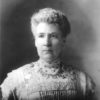 Historic Preservation
Historic Preservation Post-Reconstruction through the Gilded Age, 1875 through 1900
Post-Reconstruction through the Gilded Age, 1875 through 1900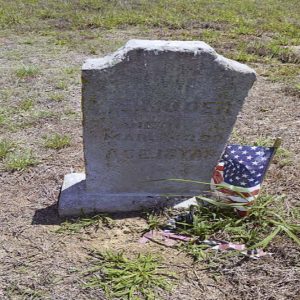 Elmwood Grave
Elmwood Grave 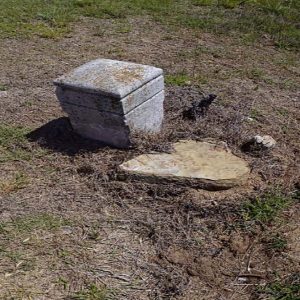 Elmwood Grave
Elmwood Grave 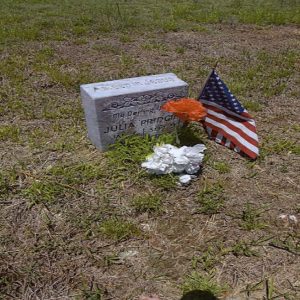 Elmwood Grave
Elmwood Grave 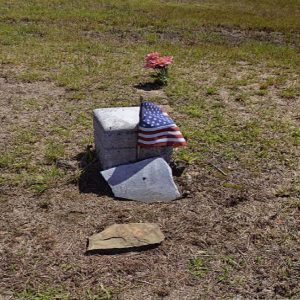 Elmwood Grave
Elmwood Grave 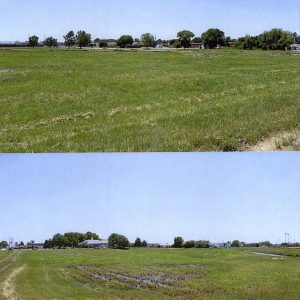 Elmwood Poor Farm Cemetery
Elmwood Poor Farm Cemetery 



My great-great-grandmother Melvina Cole was buried there in March 1936 in an unmarked grave, according to her death certificate from Little Rock. She was born Amanda Melvina “Vina” Spears in Perry County, Arkansas, to Robert A. Spears and Lavina Elsberry. She married James David “DC” Cole of Mena, Arkansas. They had nine children, but only eight made it to adulthood. She was eighty-seven when she passed away of diabetes.